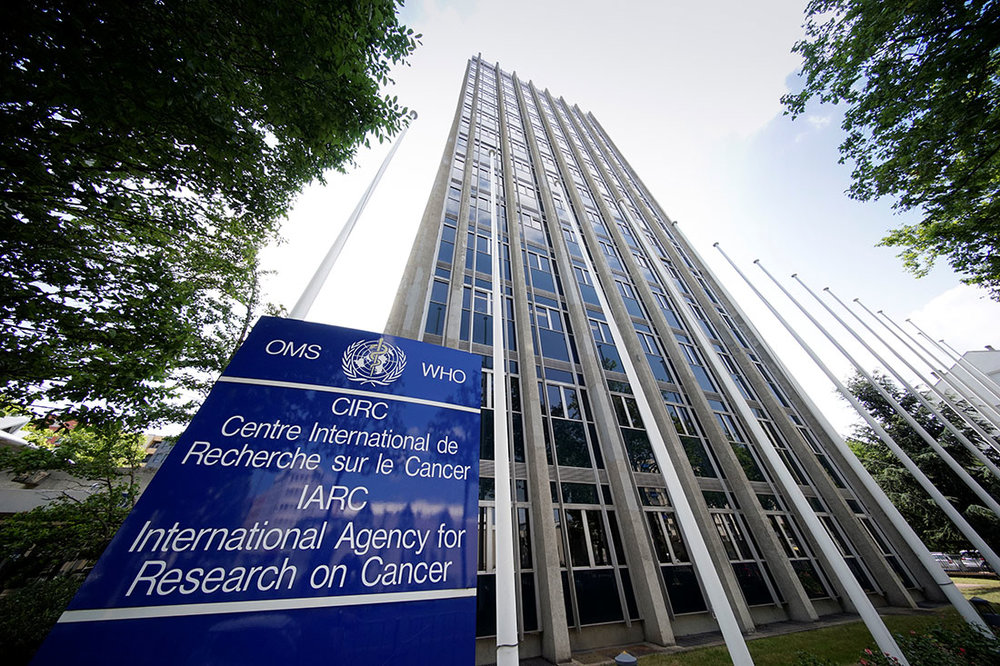Iran joins Intl. Agency for Research on Cancer

TEHRAN — Iran has become a new participating state in the International Agency for Research on Cancer (IARC), sealing a long-standing relationship of collaboration between IARC and Iranian scientists.
“The government of the Islamic Republic of Iran has shown its strong commitment to promoting research on cancer prevention and strengthening cancer control programs,” IARC Director Christopher Wild said.
Wild went on to say that “The country can play a key role in promoting cancer prevention in the region, in particular in helping to set up high-quality cancer registration, as well as through the unique insights into cancer causes and prevention provided by the Persian Cohort Study.”
The membership of the Islamic Republic of Iran also reflects the continuing efforts of IARC to include participating states in regions that are currently underrepresented on its governing council.
Reza Malekzadeh, the Iranian deputy health minister for technology and research and head of the Iranian delegation to the IARC governing council, convened on May 16, also explained that Iran has collaborated with IARC for over 20 years.
In January 2018, a memorandum of understanding was signed between the Cancer Research Center of the Cancer Institute of the Islamic Republic of Iran and the IARC Section of Cancer Surveillance, to establish an IARC–Global Initiative for Cancer Registry Development (GICR) Iran Collaborating Centre. As Malekzadeh, who received the International Agency for Research on Cancer (IARC) Medal of Honor in 2018, has said the center aims to improve the quality and coverage of cancer registration in Iran and in neighboring countries, and to foster the development of joint research projects on descriptive epidemiology of cancer, for enhanced implementation of cancer control activities.
The professor of gastroenterology and Director of the Digestive Diseases Research Institute at Tehran University of Medical Sciences, expressed hope that with expending ties with IARC Iran can contribute to major global researches on cancer.
Long history of collaboration
According to the IARC website the first collaborations between Iranian scientists and IARC date back to 1968, with the establishment of the Caspian Cancer Registry, a population-based cancer registry covering the Caspian Sea littoral region of the country, coordinated by University of Tehran. This initiative led to the development in the 1970s of several joint epidemiological studies on risk factors for oesophageal cancer in the region.
In the early 2000s, a pilot for a large-scale prospective cohort study to investigate the causes of oesophageal cancer was initiated in the northeastern parts of the country, in a collaborative effort between the Tehran University of Medical Sciences and IARC. The ensuing Golestan Cohort Study, launched in January 2004, provided the basis for a range of collaborations between the Digestive Diseases Research Institute of the Tehran University of Medical Sciences, the United States National Cancer Institute, and various IARC research groups, to study the role of lifestyle factors, infections, and genetics in oesophageal, colorectal, pancreatic, gastric, and other cancers. The Golestan Cohort Study has been extraordinarily successful, producing numerous publications in international scientific journals and helping to develop a new generation of Iranian epidemiologists.
Moreover, earlier this year, the national population-based cancer registry of the Islamic Republic of Iran was established, through a collaboration between the Digestive Diseases Research Institute of the Tehran University of Medical Sciences and the Iran Ministry of Health. The registry includes 30 provinces and covers 98% of the Iranian population. Data from the registry have been submitted to IARC to contribute to the next publications of GLOBOCAN and Cancer Incidence in Five Continents (CI5).
International Agency for Research on Cancer
The International Agency for Research on Cancer was established in May 1965, through a resolution of the XVIIIth World Health Assembly, as an extension of the World Health Organization, after a French initiative. IARC’s founding members were the Federal Republic of Germany, France, Italy, the United Kingdom and the United States of America. The Agency’s headquarters’ building was provided by its host, and is located in Lyon, France.
Today, IARC's membership has grown to twenty six countries including the founding States plus Australia, Austria, Belgium, Brazil, Canada, Denmark, Finland, India, Ireland, Japan, Morocco, Norway, the Netherlands, Qatar, Republic of Korea, Russian Federation, Spain, Sweden, Switzerland, Turkey, and Iran.
The Agency is the specialized cancer agency of the World Health Organization. The objective of the IARC is to promote international collaboration in cancer research. The Agency is inter-disciplinary, bringing together skills in epidemiology, laboratory sciences and biostatistics to identify the causes of cancer so that preventive measures may be adopted and the burden of disease and associated suffering reduced.
A significant feature of the IARC is its expertise in coordinating research across countries and organizations; its independent role as an international organization facilitates this activity. The Agency has a particular interest in conducting research in low and middle-income countries through partnerships and collaborations with researchers in these regions.
MQ/MG
